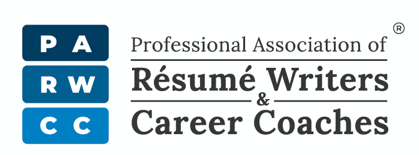
Handling the “Overqualified” Excuse
In the Bronx, when a hood is being considered for employment, the “Boss might ask, “Hey Guido, tell me; if you were to go to collect a payment – well, how many such COLLECTIONS have you made and what, ah’ – tactics did you use to make duh collections?” Guido answers, “Well, you see – aah, it’s like dis Boss; I have been doon dese kinda tings for a long time. Broke knuckles (not always my own), but I get the job done, okay?”
Actually, Guido did not get the job because the Boss felt he had too much experience. I guess he was “overqualified”! What the Boss did not take into consideration was Guido’s talent for collecting more doe than anyone else collects. Yup, Guido might cost a little more, but – aah – his collections are known to be outstanding.
It’s a bit of a spoof; however, it makes an important point. “Overqualified” is a good thing!
Last week I went shopping for a Ford Focus. Soon after the negotiating process began, the sales representative said, “You know what? We have too many Fusion Hybrids in stock. If you sign tonight, I will deliver a fully equipped 2011 Fusion for the same price as the 2011 Focus you have chosen. Have we a deal?” I answered, “No thanks, the Fusion is overqualified.”
Are you kidding me? Are you telling me I am essentially too experienced and too knowledgeable to be your new Project Manager? John McEnroe responded, “You can’t be serious!”
Well, I am serious. Employers make this mistake time after time. They have something against looking at the gift horse in the mouth while passing up opportunities to bring thoroughbreds with excellent vision onboard. Overqualified applicants are a bonus.
However, suppose after hiring an “over-qualified” applicant, they resign for a higher-paying position elsewhere. After evaluating how their superior skills and knowledge benefitted your employer’s objectives during their short tenure, I can almost guarantee that if they try to move on, most discerning employers will want to counter their new offer. That which employers invest to keep them will have proved worthwhile. Hey, it is like getting two free additional tires when you purchase four; if you do not use the sixth, eventually, you will only need to replace as few as three.
Here is another benefit derived when the “overqualified” are hired. Just like Guido, who can handle more collections than most, your overqualified candidate may be able to adorn two, three, or more different hats. Most companies were rebuilding after the effects of the economic crisis. Having employees that could pinch-hit in other areas gave employers a significant edge over the competition. I understand that it was not about experience and knowledge but money.
Employers assume (ass-u-me) hiring the so-called “overqualified” will cost them too much money. Like Guido, your overqualified candidate shall most assuredly out-produce the so-called “qualified” choice. Hey, you can pay me now or pay me later. Either way, it’s gonna cost ya!
The challenge is that most candidates do not know how to counter the “overqualified” excuse. To make matters worse, interviewers cannot see the trees in the forest. America had experienced the most significant financial correction in its history. Everything deflated in value. Because of that “astounding” revelation, even Cavemen understood pay scales had been humiliated or “corrected.” Unemployment was rampant. People were losing their jobs by the thousands. It wasn’t long before deflation reduced rents charged for cave dwellings. Housing prices dropped to such levels that many walked away from their mortgages. Bankrupcies increased to record numbers, and we entered into a strong recession. Since many things occurred, including COVID and after struggling through inflation, which may be considered under somewhat of control today, we are left with significantly increased rent, housing, food, and other prices, which brings me back to the point of this writing.
Within the “sales” process – and interviewing is a sales process – statements such as “We want to think about it” or “We have four more candidates to interview” are merely requests for more information. They are signals that you (the applicant) have not supplied enough information to make the desired decision. The “over-qualified” excuse is another statement signaling that the candidate has not delivered the message that the value offered is worth the investment. “Over-qualified,” like all other objections, is simply a request for more information; “Why should we select (hire) you?”
Years ago, when attending a sales seminar given by the renowned motivational speaker David Yoho, I learned that once a decision of “no” is rendered, making the decision maker change that decision to a yes is a stern improbability; however, by presenting new information, it is highly possible the decision maker may be incentivized to make a “new” decision.
In essence, I learned from David Yoho, if nothing else, that objections are simply requests for more information and that taking them at word value is a mistake of the highest proportion. Sales icons agree universally that they persist until they have heard the “no” word a minimum of six times before moving on. Simply because the interviewer says, we’ve others to interview, or we feel you are “over-qualified,” is not a reason to shake hands and leave; it is a reason to dig deeper by asking more questions to uncover the real reason or reasons. Once you do – find the real objections – the job, most times, is yours for the taking. Here is a valid clue: 99 of 100 times, the reasons behind their objections relate to money. Even though, in your heart of hearts, you know that you cannot deal with it openly until you get the interviewer to admit that money is the only reason for denying you, the “not over-qualified,” but “most-qualified candidate, the job. If it is money and they won’t admit that, it means you have not established your monetary value yet!
So many resume aficionados advise the so-called “over-qualified” to tone down their resumes to appear less qualified in hopes of avoiding that label, which is generally interpreted as a negative when, in fact, it is hugely positive if dealt with, as it should.
Never minimize your value; never tone down (as the phrase suggests) your superior knowledge and skills. Mom and Dad said, “Never sell yourself short?” On the contrary, making a strong case that as economic conditions are improving, salaries are increasing, unemployment is the lowest in decades, and there are more job vacancies than there are candidates to fill them gives you more employment opportunities now than in the past two
decades. Allow those with whom you interview to understand that for whatever they offer; you have not toned down your qualifications or salary expectations; “that because you can wear many hats, the knowledge, experience, vision, and value you offer is worth their investment.”
Remember, interviews are sales opportunities. The “overqualified” excuse is another “objection” to overcome. Like all “objections,” smile silently for ten seconds and ask, “Why do you say that?”
To reiterate, all good salespeople understand the meaning of “objections.” “Tell me more; I am not yet sold.” Isolate the real objection, which 99 of 100 times is about money, and the job is yours!
Tell those for whom you interview, “Evaluate the potential of my contributions, not the monetary value of my qualifications.” Inspired by a Bo Bennett quote.
By Arnie Sherr




